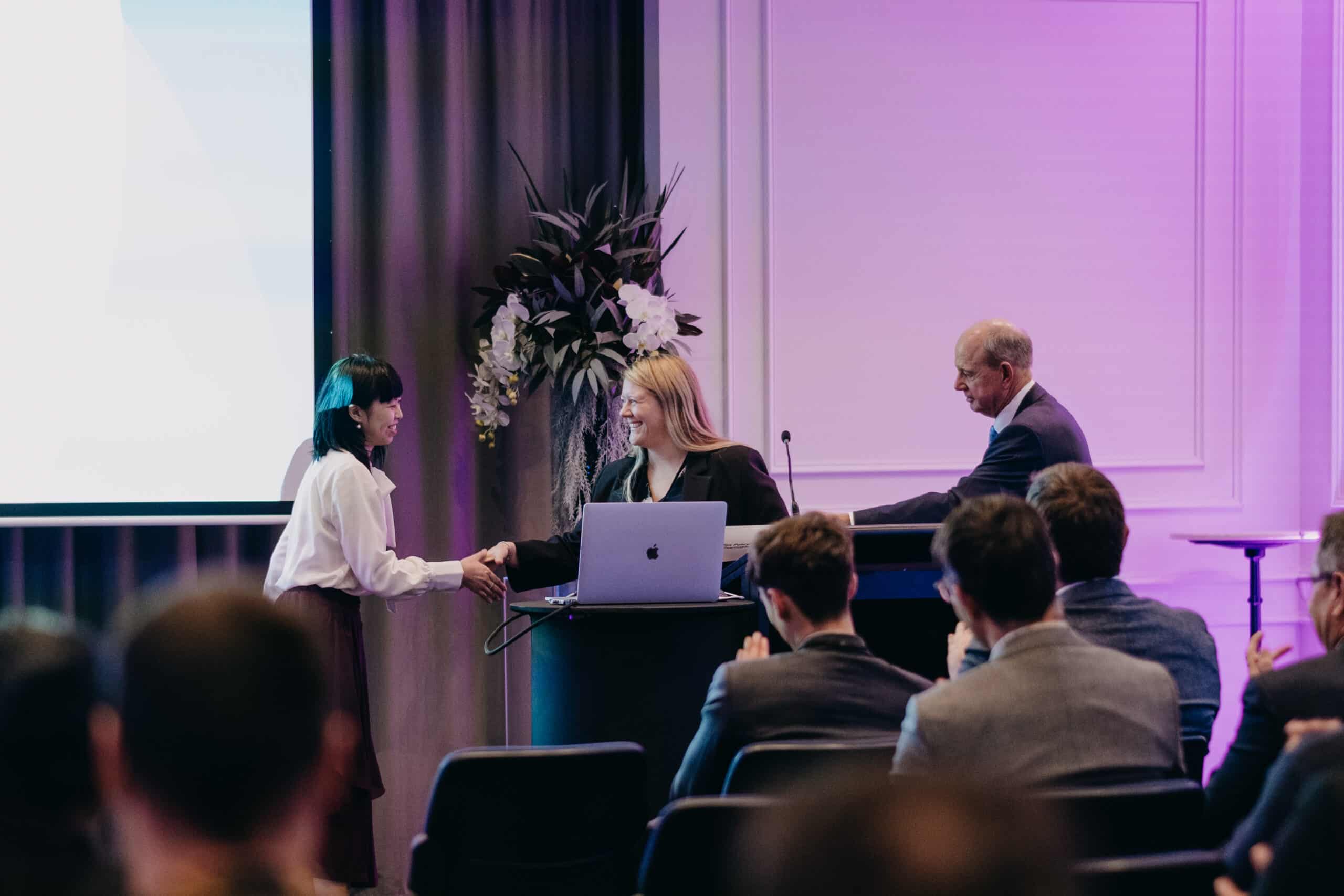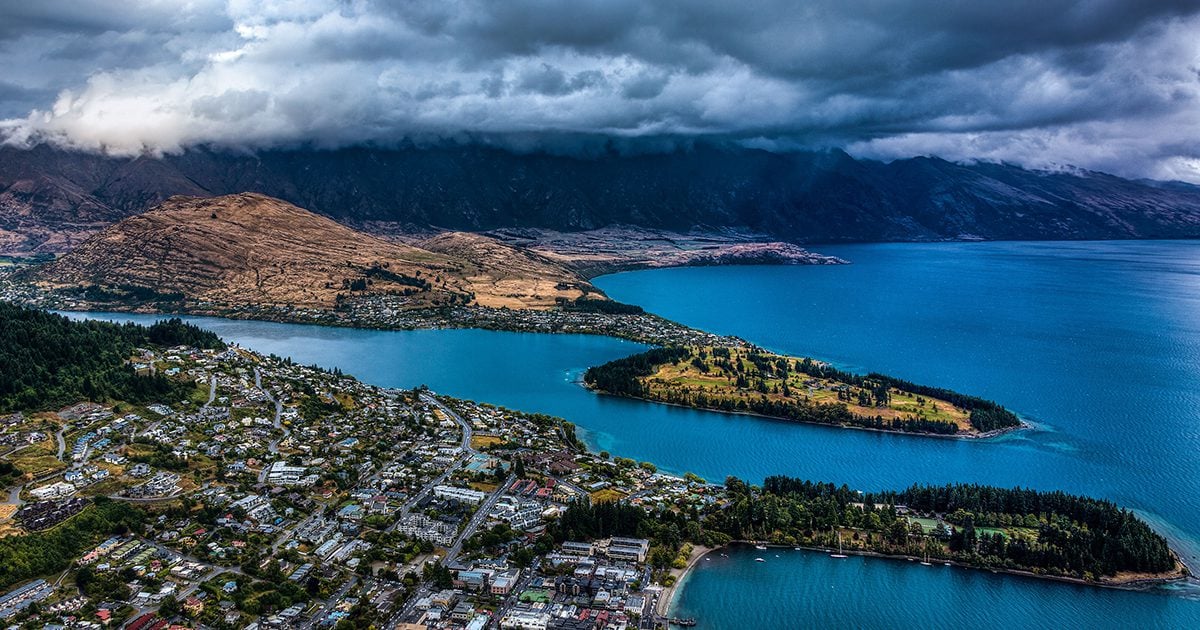Auckland Climate Festival - Impact story
“It is predicted that we will exceed our city’s allocated carbon budget within the next five years under the current scenario. This means, to secure a safe city for future generations and ‘play our part’ on the global stage, we must radically accelerate impactful change across our whole society within this time period. One of the successes of the festival is the ability to bring different parts of society together to help drive and amplify this change together.”
Michelle Kennedy, Founder – Auckland Climate Festival
As Aotearoa’s most populous region, it is the citizens, businesses and communities of Tāmaki Makaurau that will determine the region’s – and ultimately much of the country’s – ability to create a climate-resilient future. The Auckland Climate Festival has shown that those living, working and studying here are up for the challenge. Many are, in a diversity of ways, better understanding their current impact and looking at ways to embed regenerative behaviours.
When Michelle Kennedy returned to her homeland, having worked on London Climate Action Week, she brought with her the ambition to create the same powerful platform in Auckland. Inspiring Kiwis to engage in tackling the greatest issue facing our world and bringing hope into a space that is dominated by narratives of doom and gloom.
Michelle founded Auckland Climate Festival in 2021 and Whakatupu Aotearoa Foundation was right there with her. Getting behind her passion, helping ignite her idea and supporting her both financially and strategically to see more than 70 events take place over several weeks in October. Despite the need to pivot to online gatherings in response to further lockdowns and a year of disruption, people connected. A year on, the number of events nearly doubled with the social energy returning to the room as people met in person in October 2022.
A diverse menu of opportunities for participation, that speak to schools, whānau, businesses and individuals, means there is something for everyone to be inspired by and feel empowered to act on. People have been invigorated at events hosted by community groups talking about composting and food resilience, businesses collaborating and designing low-carbon systems for the corporate world, restaurants delighting diners with sustainable foods, and climate activists raising issues such as how Aotearoa can welcome climate refugees as a result of sea level rise in the Pacific.
The partnership between Michelle and the Foundation is far more than a transactional funding relationship. The critical need at the beginning was for catalytic funding to help establish the project and support the operational team to build momentum. The Foundation’s support came in the form of an initial grant, impact loan and strategy support. Yii Petrus, Whakatupu Aotearoa Foundation’s Programme Director, stepped into a strategic role on the festival’s board. This gave Michelle and her team access to planning advice and connections with the financial, technological and marketing skills to bring about a robust framework for the festival.
“I have been hugely impressed with Michelle’s determination and commitment. She has worked relentlessly to realise her vision for the festival and backing her has been a privilege. In just two years I have seen a community of climate leaders grow around Michelle, setting in motion an accessible, educational and hopeful movement,” says Yii.
By the numbers
As at October 2022
200
events
50k+
people reached
$160k
our investment
Live Ocean - Impact Story
The ocean is a life support system for our planet – it provides 50% of our oxygen, has absorbed 90% of the extra heat we have produced, and can host thriving ecosystems of marine life. But climate change is affecting what’s above and below the waterline. Our oceans are changing, they’re heating up, becoming more acidic, and are at a tipping point.
Aotearoa is an ocean giant. We have the fourth largest ocean space in the world, but we only protect 0.4% of it. As guardians, it’s our role to look after, protect and restore it so that life can flourish.
Having seen first-hand through their sailing careers the interconnectedness of the world through the ocean, and realising the critical need to look after it, in 2019 sporting legends Peter Burling and Blair Tuke founded Live Ocean Foundation. It partners with exceptional New Zealand scientists, innovators and communicators to scale up action for a healthy ocean.
An example of research taking place is the documenting of kelp forest loss in Tīkapa Moana, the beautiful Hauraki Gulf. Beneath the surface the ecosystem is in crisis. A key tohu or indicator is the kina barrens that have become prevalent where kelp used to thrive. Live Ocean Foundation is supporting research into the significance of kelp forests and their regeneration. This research is led by Dr Nick Shears and Dr Caitlin Blain from the University of Auckland. The research is looking at how we can protect and restore coastal areas to encourage kelp forests to bloom and those ecosystems to recover. It’s also investigating how kelp forests contribute to carbon cycles, providing an exciting potential opportunity to quantify blue carbon.
“There is no option other than to act, together and with urgency to secure the ongoing health and productivity of the ocean.” – Sally Paterson, Chief Executive, Live Ocean Foundation (Speaking at the United Nations Ocean Conference, Lisbon 2022)
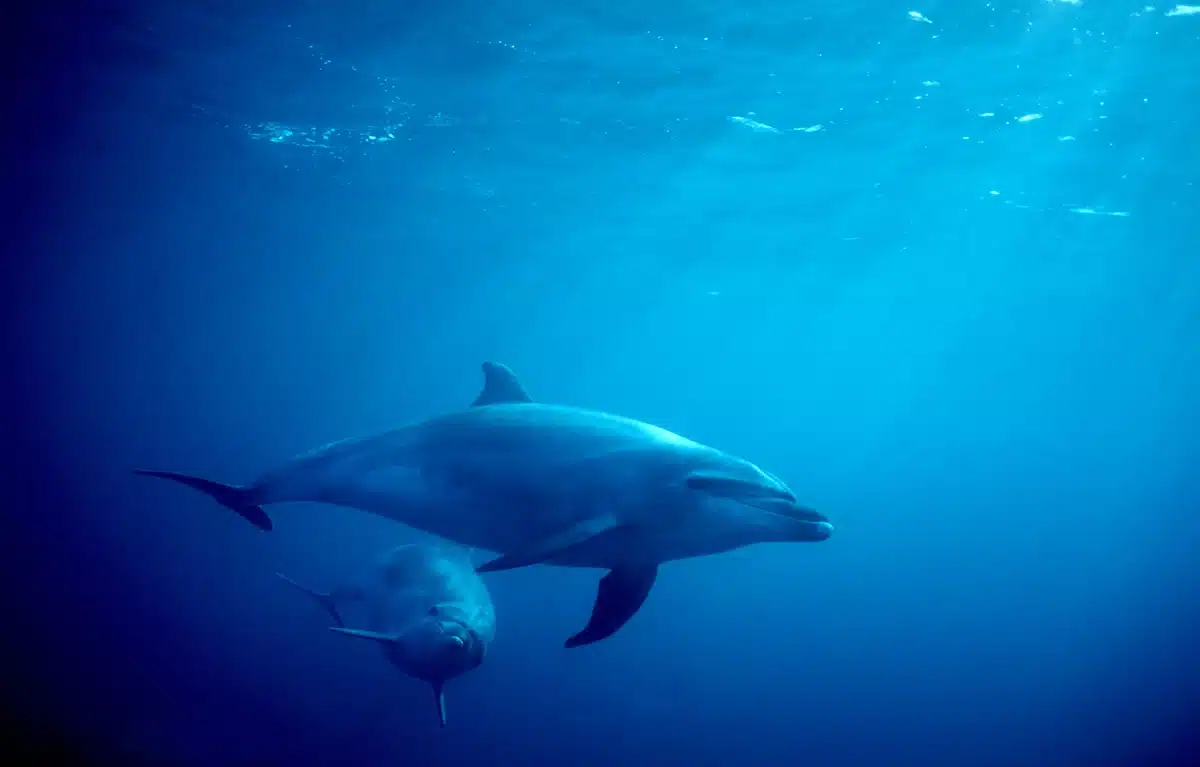
In 2022, Peter Burling and Blair Tuke presented a commitment of over 120 leading sportspeople and ocean communities to the UN Secretary General’s Special Envoy for the Ocean, Ambassador Thomson, at the UN Ocean Conference in Lisbon. This is part of Live Ocean’s work to create a platform that amplifies the voices of sportspeople – calling for better global marine protection on the world’s stage. Here, Chief Executive Sally Paterson spoke to the conference on behalf of Live Ocean Foundation, presenting its work.
Whakatupu Aotearoa Foundation’s journey with Live Ocean Foundation started two years ahead of Lisbon. With the combined talents of Peter Burling, Blair Tuke and Sally Paterson on board it was clear that their strong leadership, diverse connections, experience and a shared global vision for the ocean could create much-needed kinetic action. Action that is required across government, business and communities. As an initial partner, Whakatupu Aotearoa Foundation was able to provide catalytic funding to help establish Live Ocean and provide core infrastructure to set up and run the organisation.
As Founder of Whakatupu Aotearoa Foundation and a keen recreational sailor, Ian Kuperus relates to Live Ocean’s mission. “The sea connects us all, we rely heavily on its prosperity and we are bound together to protect it. As a nation of voyagers and travellers who have made our home on a group of islands way out in the Pacific, our identity extends to the water as much as the land. We are all invested in its restoration, and I am inspired by the team’s urgent and considered progress at Live Ocean.”
By the numbers
As at October 2022
11
projects
2.4m
people reached
$850k
our investment
Burling and Tuke on building a better Aotearoa
America’s Cup winners and Olympic gold medalists, Peter Burling and Blair Tuke share their knowledge on how to make an environmental and social impact.
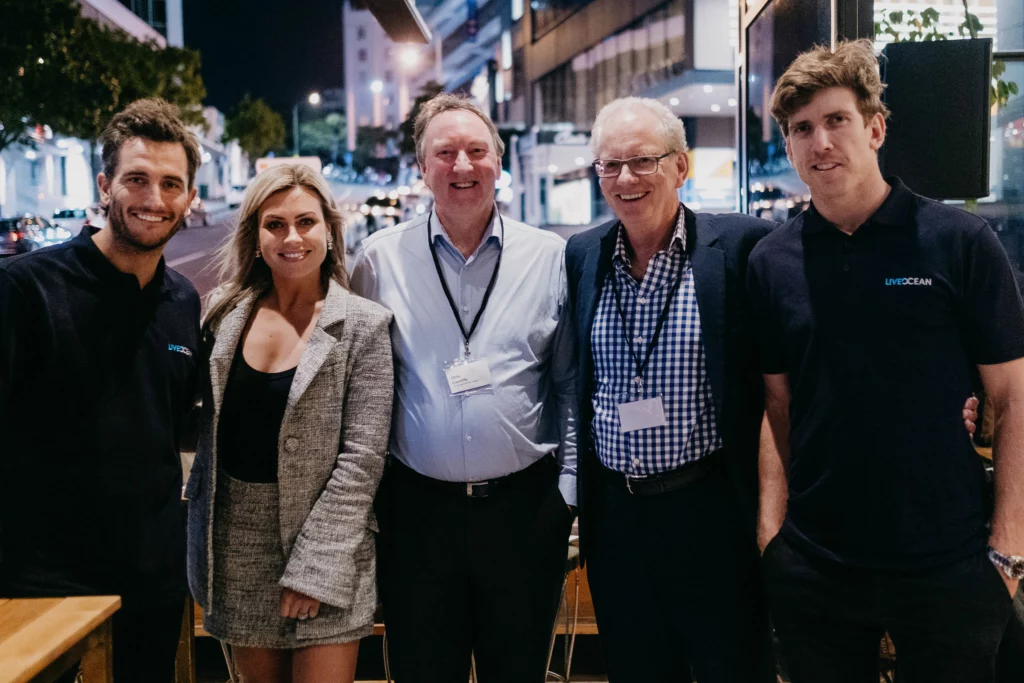
From left: Blair Tuke, Laura McGoldrick, Chris Cunniffe - TMNZ CEO, Ian Kuperus - TMNZ Founder and Peter Burling
TMNZ and the Whakatupu Aotearoa Foundation share the vision of a restored and thriving New Zealand, and we are proud to partner with like-minded organisations as we strive to build a better future for Aotearoa and its people.
In June, we welcomed Peter Burling and Blair Tuke, founders of Live Ocean and co-CEOs of the New Zealand SailGP Team. At Pilkingtons in Auckland CBD, the duo spoke to TMNZ clients about building their ocean conservation organisation, Live Ocean Foundation, and their goals to make a meaningful impact on ocean health in New Zealand.
The yachtsmen set up the charitable entity Live Ocean Foundation just before the Tokyo Olympics and recently launched Live Ocean Racing, which is a sailing team with a current focus on female development in high performance foiling boats. The Foundation partners to scale up local marine science, innovation and outreach with global implications.
At TMNZ, our clients are a key part of what enables us to direct 100% of our profits to Whakatupu Foundation Aotearoa for initiatives that enable Aotearoa to thrive. One of the organisations we fund is Live Ocean Foundation, and our recent event allowed us to demonstrate the great work undertaken by the organisation.
Peter and Blair have an inspirational story to tell. Both spoke passionately about their reasons for setting up their purpose-driven venture, using their careers to make an environmental impact, and their pride in winning the first-ever SailGP Impact League trophy.
Ocean challenges and opportunities
The duo spoke about their love of the ocean from an early age, how that has shaped their careers, and the formation of the Live Ocean Foundation.
Blair, from Kerikeri in Northland, says he was “lucky” to have grown up in New Zealand, living close to the ocean, and spending most of his life out on the water.
A key moment for both arrived in 2017-2018 after Blair and Peter took part in the round the world Ocean Race. The vastness and beauty of the ocean prompted the pair to apply their skills and use their platforms for a healthy ocean.
“We saw some really unique places around the world,” says Blair. “We saw the power of the ocean, and realised what we could do with our profile and position.”
Peter, from Tauranga, says it is vital for the planet to have a healthy marine environment, as 94% of New Zealand’s country-wide area is covered by ocean.
“As a nation, we have a big contribution to make on the world stage. But we are a long way behind in terms of the way we look after the ocean and our conservation policies. We have a big opportunity to make some incredible steps forward.”
Live Ocean’s purpose
The pair’s Live Ocean Racing team competes in international events and raises awareness about ocean conservation.
Blair says the team has “purpose in its DNA”.
“We wanted to use our sporting platform right from the foundation’s inception. It’s a team that races on, and for, the ocean.”
Live Ocean Foundation is an official charity partner of the New Zealand SailGP Team that competes in the elite international sailing competition SailGP, further raising its profile.
“It’s amazing to have our purpose baked into the sport,” says Peter. “You get to reach so many people you wouldn’t otherwise with important environmental messages.”
Peter and Blair attended the UN Ocean Conference in late June as part of their efforts to raise ocean awareness, meeting with the UN’s Special Envoy for the Ocean, Peter Thompson.
The pair said they were surprised at how quickly the international community had supported them.
“It’s amazing to see people getting behind us. But New Zealand has got lots of areas where we need to step up to meet international standards but we need to also do that in a way that’s unique to our country,” Peter adds.

World impact
While SailGP is the first climate-positive sport and entertainment property, it has ambitious targets to further reduce its carbon emissions - going beyond the UN Sport for Climate Action goal to make 50% absolute cuts by 2030 and achieve net zero by 2040.
Peter says the competition is taking “strong measures to try and mitigate its footprint”.
In a world-first for a sporting competition, SailGP is rewarding teams for their environmental performance. The competition’s Impact League ranks each team against environmental and social criteria, ranging from clean energy usage to food waste.
The New Zealand SailGP Team won the first edition of the Impact League, taking home US$100,000 for the Live Ocean Foundation.
Blair calls the trophy “a seriously proud moment for the team”.
“I’m proud of our team for using our voice, and seeing the enthusiasm to be better. All of the teams in SailGP are improving, and that’s ultimately what we’re all after, for everyone to lower their footprint.”
Personal responsibility and the role of business
When asked how New Zealand businesses should consider a purpose-led journey, Peter urges companies to think big.
“Be ambitious,” he urges. “Try and be passionate about what you’re doing. We’ve been lucky to find something we are passionate about, but there are so many worthy issues out there.”
Blair offers advice to any company considering putting environmental or social impact at their core.
“Find an issue you identify with. That means you’ll be able to integrate it within your business or life more easily. We’re fortunate with Live Ocean because it’s linked to everything we do every day.”
Find out more about Live Ocean here.
See other ways we’re helping to build a restored and thriving Aotearoa here.
All Heart NZ - Impact Story
An extraordinary amount of corporate and construction, or demolition, material ends up in landfill when owners consider it to have reached the end of its useful life. It is these materials that make up the large majority of what goes into landfill, currently about 83%, but what else can we do with it?
Joe Youssef placed himself at the heart of this question and rose to the enormous challenge of repurposing and redistributing perceived ‘waste’ to those who look at it as an exceptional, life-changing resource. He founded All Heart NZ in 2016 and communities around Aotearoa began receiving office chairs and tables, storage furniture, stationary, de-branded clothing, technology, hotel linen and repurposed retirement-home furnishings. Everything, including the kitchen sink!
All Heart NZ employees come from all walks of life and Joe seeks to bring on staff who are looking for a chance, helping them to return to the workforce, for whatever reason, and gain meaningful employment. Roles are varied and have recently extended towards upcycling materials that need work before they can be redistributed, and breaking down materials into their separate recyclable parts, diverting them from landfill and extending their use.
“We have a tendency to think and act in a linear way. We extract resources to create a thing that is then sold, consumed, and ultimately thrown away. That has to stop. At All Heart NZ we don’t talk about waste, we talk about resource.” – Joe Youssef, Founder and Chief Encourager, All Heart NZ

“Businesses aren’t buildings, they are people,” Joe reminds us. As soon as a better way becomes available, people are drawn to it. Since All Heart NZ started six years ago, the All Heart NZ network of providers and recipients has grown to a level that requires minimal storage. An All Heart NZ driver will pick up and drop off all items on the same day as matches are made in advance. There is also a social enterprise stream at All Heart NZ. Items that can be repurposed or sold are taken through the retail network, All Heart Store, providing a circular solution for the resource, creating further employment, volunteerism, and training opportunities.
With All Heart NZ looking to grow further outside of Auckland, establishing its regional All Heart Store network was key. However, funding was a significant constraint. Through the partnership with the Whakatupu Aotearoa Foundation, Joe has been able to explore new initiatives and grow the store network, including adding additional services to the business model, enabling corporates to strategically rethink and redesign waste out.
Having seed funders that can appreciate the vision and get behind it is absolutely critical. Joe worked closely with Carl Vink, Chief Executive of Whakatupu Aotearoa Foundation, on realising the vision. “Joe is one of the leading lights in trying to change the mindset of our businesses and communities, while also providing the critical infrastructure to help organisations do better with the material they no longer need,” says Carl.
By the numbers
As at October 2022
4.4m kgs
resources recovered
355
community recipients reached
1,770
corporate providers reached
$340k
our investment
Tax Policy Scholarship showcases the next generation of talent
Four bright young industry minds have emerged as finalists in this year’s Tax Policy Scholarship Competition, an annual prize hosted by the Tax Policy Charitable Trust.
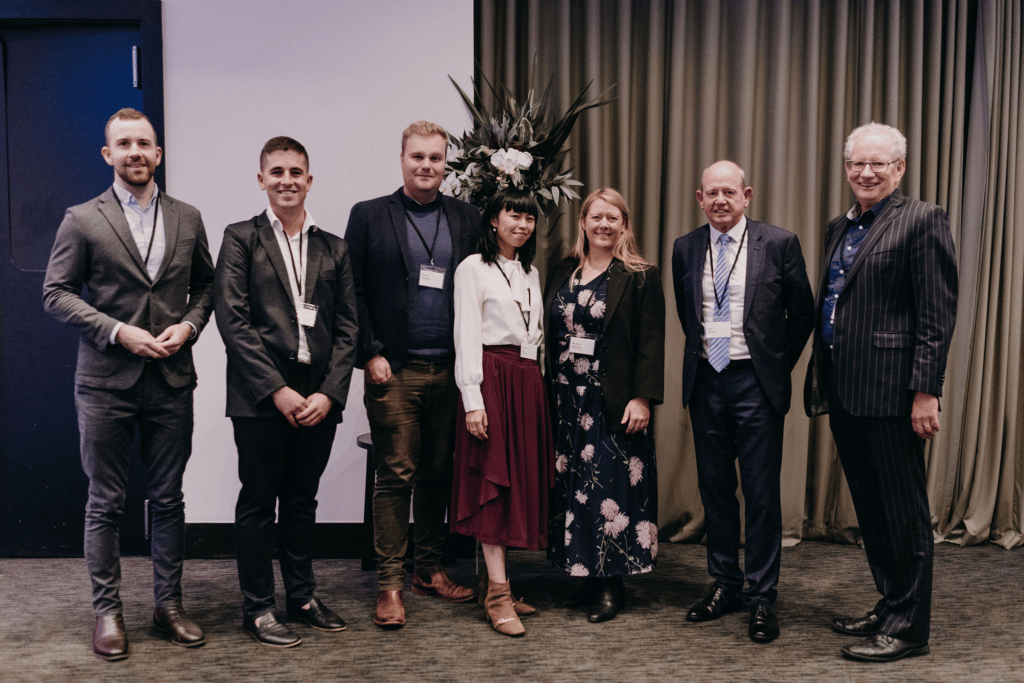
The biannual competition, which supports the continuation of leading tax policy research and thinking in New Zealand, enters its fourth round in 2022. The first competition was run in 2015.
The scholarship is designed to inspire the next generation of tax industry leaders. This year, entrants under the age of 35 were invited to propose significant reforms to our current tax system or analyse potential weaknesses and unintended consequences from existing laws, and propose changes to address them.
Entrants were asked to tackle one of three topics: environmental taxation, tax administration, or the powers granted to the Commissioner of Inland Revenue to collect information for tax policy purposes. Participants were invited to address the topics with creative ideas backed up by reasoned research and analysis.
We are delighted to announce the four finalists for this year’s competition, selected by our panel of leading tax industry professionals.
Daniel Doughty
Daniel is a Senior Consultant with EY in Wellington. He has proposed the introduction of a small business consolidated reporting regime to simplify tax reporting for small companies.
The regime would consolidate pre-existing tax obligations into a single report to be filed every second month. Inland Revenue would send an automated income summary out at the end of the year, similar to those currently prepared for individuals.
Mitchell Fraser
Mitchell is a Tax Solicitor with Mayne Wetherell in Auckland. Mitchell is concerned that the recently-expanded powers granted to Inland Revenue to collect information for tax policy purposes could create unintended consequences.
He believes the new powers risk political interference, conflicting with the IR’s need to be politically neutral. Mitchell proposes identifying alternative means to collect this information, including through Statistics New Zealand.
Vivien Lei
Vivien is Group Tax Advisor with Fisher & Paykel Healthcare, and finance lead with the Fisher & Paykel Healthcare Foundation.
Vivien proposes to change New Zealand’s environmental practices through the introduction of an impact-weighted tax regime. Under this model, organisations would be taxed on their net positive or negative impact on the environment.
Jordan Yates
Jordan is a Senior Tax Consultant with ASB in Auckland.
Jordan believes the tax policy landscape is fractured, and suffocated by political roadblocks. His proposal is to establish an independent statutory authority that would be responsible for the independent management of fiscal policy, as it relates to the tax base.
Selecting a winner
The finalists were announced on 2 June, and each will go on to develop a 4,000-word submission on their proposal.
The four will be invited to present their final proposals and answer questions at a function in October 2022. The winner will be announced that evening.
Our Tax Policy Scholarship Competition celebrates creative thinking from young professionals and also provides a springboard for the brightest industry minds to develop their careers.
Nigel Jemson, the winner of the 2019 competition, says: “Entering the competition was a terrific opportunity for me to grow and develop my tax policy thinking and connect with leading minds in the tax community. Winning the competition has given my career a boost and since, I have enjoyed a range of great roles in tax for leading businesses, Spark and PwC, and continued my involvement in and passion for New Zealand tax policy.”
Chris Cunniffe, Tax Policy Charitable Trust Committee Member and TMNZ Chief Executive, says this year’s entries underline the strength of the next generation.
“We’re consistently delighted with the breadth and the freshness of thinking young people bring to this competition. The competition provides a forum to share ideas, and secondly, ensures that creative tax policy is not the sole domain of people who have worked in the industry for a long time. As an industry, we are open to fresh thinking and new ideas.”
Tax Policy Charitable Trust Chair John Shewan says the entries prove the industry’s future is in good hands.
“New Zealand has been very fortunate to have so many competent tax leaders involved in developing policy for the betterment of our country. It’s very exciting to be around the next generation of future tax policy influencers, who are already, at a young age, focused on innovative opportunities to enhance the tax landscape.”
Michelle Redington, Chief Tax Counsel at Inland Revenue, who was the guest speaker at the event where the four finalists were announced, says it is fantastic to see the Tax Policy Charitable Trust create opportunities for the next wave of tax policy thinkers.
“Throughout my career, I have been very lucky to be supported by some of New Zealand’s preeminent tax leaders, who have been fantastic teachers and mentors,” she says. “I’ve enjoyed a diverse career in tax, spurred on by a need to solve complex problems, and I’m proud to be able to give back to the next generation of talented tax enthusiasts.”
Find out more about the Tax Policy Scholarship Competition, here.
Using the Due Date on myIR statements may needlessly expose you to UOMI
Let's talk about how TMNZ can help you to avoid interest charges with payments at P3.
Unfortunately we're seeing many clients buying tax at the wrong dates. We believe this is caused by the confusing way Inland Revenue displays the Residual Income Tax liability on the myIR statements. If a taxpayer doesn’t meet the safe harbour threshold of less than $60,000 RIT for the relevant tax year, paying tax at terminal tax date will cost you Inland Revenue Use of Money Interest (UOMI).
Why is this?
- Inland Revenue myIR transaction detail statements show the tax due split on what amounts are liable for late payment penalties and what amounts are not.
- As late payment penalties are charged on the lesser of the standard uplift amounts and RIT/3 for all provisional tax dates, they will usually show two amounts for the P3 date. The standard uplift amount will be shown as due at P3, and the balance of current year RIT will be shown as due at the Terminal Tax date.
- However, what is not clear on myIR is that use of money interest will be charged on the combined P3 total, from P3 to the date the tax is paid.
- So those that are not transferring the combined total at P3 but transferring the amount at the terminal tax date, will incur interest from the P3 date.
How can I stop this?
When transferring or purchasing tax from the TMNZ tax pool, you should be doing this for the combined P3 amount at the P3 date. This will mean you avoid interest charges.
To find out more, get in touch.
Disclaimer: This article is correct as at 19 April 2022. It is subject to change.
TMNZ’s sustainable office: how we moved and improved our environmental footprint
Our new Auckland office aligns with our ambition to build a more sustainable future for Aotearoa. Here’s why we made the move.

When we kick-started the process of finding a new Auckland home last July, we were eager to do things differently and place a strong emphasis on sustainability. At TMNZ, we’ve always been conscious of the environment, but we wanted to go a step further as we developed our new corporate headquarters.
We wanted to ensure people and the environment were at the heart of our new workspace design. We needed to find the right setting for our Auckland employees and develop an office that would help us become more sustainable. Moving required a holistic approach, incorporating climate change, environmental degradation, and waste mitigation.
“We wanted to create a great workplace for our people to enjoy. They were involved throughout the project,” says Amanda Thorpe, TMNZ’s Head of People and Culture. “Our people helped us select the office space and we ran engagement sessions with employees to discuss aspects of the design. We worked together to make our vision a reality for both TMNZ and the Whakatupu Aotearoa Foundation, as we continue to support the trust’s philanthropic efforts.”
The environment is a big focus for TMNZ and the Whakatupu Aotearoa Foundation. Through the Foundation we look to invest in initiatives that tackle climate change, environmental degradation, declining biodiversity, and waste. It was very important to us to give the same environmental focus and attention to the design of our new workplace.
Building a sustainable home
We selected an office at 23 Customs Street in Auckland and enlisted Peter Doyle, from NOWW Advisory and Wingate Architects, to help us build an eco-friendly workspace. Together we explored how we could reduce our environmental footprint with each decision.
”Materials used in the new space have been chosen with sustainability in mind,” says Sarah Bryant, Associate Senior Interior Designer at Wingate Architects. “TMNZ’s new home features Jacobsen’s carpets made from recycled drinking bottles, Tarkett hard floors manufactured from recycled PVC, and Green Tag Certified Autex Cube ceiling tiles, made with at least 40 percent recycled materials.”
We selected sustainably-sourced mataī joinery and panels, and recycled rimu tables. We also chose sustainable furniture fabrics for every chair and stool.
No detail was too small; desktop surfaces at TMNZ are now made of all-natural linoleum, produced from pure oxidised vegetable linseed oil and natural pine rosin. We also made use of recycled products, including a reused office pod that hosts our breakout meetings.
Making an impact, without waste
While we took a careful approach, moving from one place to another inevitably produces waste. In our case, much of our old furniture was no longer suitable for the new office. Our people worked to find a solution and struck upon an idea to recycle and make a social impact at the same time.
To ensure nothing went to landfill, we teamed up with All Heart NZ, a charitable organisation that works with corporates to redirect and repurpose unwanted corporate and construction items. The organisation offers ‘Reduce partnerships’, which help to further develop the sustainable, ethical, and social aspects of procurement and supply chain management. All Heart NZ has established a national circular solution for redundant corporate items, which creates employment, volunteerism, and training opportunities while supporting local community need.
All Heart NZ helped us to achieve a positive social and environmental outcome by redirecting 216 items weighing more than 6,500kgs. With items reused, repurposed, and resold, 100 percent of the benefit went to New Zealand communities in need.
Joe Youssef, All Heart NZ’s Founder and Chief Encourager says: “We know that improving the ways we source and dispose of corporate goods can positively impact our planet and people. We partnered with TMNZ to redirect all redundant materials in preparation for their office move. Together we created a sustainable solution and community impact to be proud of.”
Through our partnership, we added $16,700 in community impact value and avoided 7.6 tonnes of carbon emissions. All Heart NZ’s partnerships have supported 439 different communities throughout Aotearoa and the Pacific, helping them save or raise more than $9.1 million, while at the same time assisting corporate partners to divert more than 3.7-million kilograms from landfill.
A welcoming space for our people
Our office was designed for our people. Collaborative spaces and new technology will enable us to work together and with our customers and partners regardless of where they are in New Zealand. Technology including whiteboard cameras, immersive collaboration spaces and fully cable-free working will make us more connected than ever and reduce the need for unnecessary travel. What’s more, we have chosen technology suppliers that lead in terms of their sustainability commitments while at the same time provide a seamless employee experience.
We moved into our new workspace in March, and our environmental sustainability efforts continue. We have made an ongoing commitment to reduce waste sent to landfill and we’re constantly exploring new ways to improve.
TMNZ and the Whakatupu Aotearoa Foundation have a shared vision of a “restored and thriving Aotearoa”. Our new workspace will allow both organisations to come together with clients and charity partners in an open, inviting environment — one that has been designed to limit the impact on future generations.
While COVID-19 restrictions have prevented us from welcoming visitors into our new home so far, we look forward to showing customers and charity partners our new surroundings in the months to come as we mark new chapters at TMNZ and the Whakatupu Aotearoa Foundation.
Survey indicates property market cooling due to confusion
News release: Chartered Accountants Australia and New Zealand and Tax Management New Zealand
26 November 2021
A survey of chartered accountants and tax agents has revealed that incoming legislation intended to help cool New Zealand’s over-heated housing market is already having a major effect on investors – but largely because of confusion and lack of detail rather than clear policy.
The annual survey, jointly run by Chartered Accountants Australia and New Zealand (CA ANZ) and TMNZ, sought the views of 361 accountants in public practice, on recent tax policy developments.
Among the findings, the survey revealed that 70% of respondents have already seen clients change or voice their intention to change their residential property investment behaviours due to ongoing changes to the extended bright-line test, and proposed changes to deny interest deductions.
CA ANZ NZ Tax Leader John Cuthbertson said that further results from the survey show to key factors in play; the complexity of the proposed rules, and uncertainty as the details could change before the legislation is enacted in March 2022, despite the bright-line and denial of interest deductions coming into play from earlier this year.
“The survey suggests that the housing market has been given a policy placebo, in the form of legislation that is influencing behaviour before it is fully developed and enacted.”
“Residential property purchasers and investors typically react to the specific detail of legislation. However, in this case the market appears to be reacting to the complexity of the proposed legislations carveouts and inconsistencies, and the fact that it won’t know exactly what is in place until March 2022, despite it being backdated to capture activity in 2021.”
“To be fair, the Government’s aim was to cool down the overheated housing market, which is causing a range of economic and social issues, but we’re not sure this is the best way to do it.”
The survey shows that over 21 per cent of the respondents, or 1 in 5, feel ‘not at all confident’ about advising clients on the proposed new build interest limitation rules, and over 65 per cent of participants felt the phase out and denial of interest deductions would be somewhat or extremely difficult to comply with.
Similarly, almost 50% of respondents said they were either somewhat confident, or not at all confident on advising on the new build bright-line test.
“Because this policy hasn’t been developed in line with the generic tax policy process (GTPP), there’s a much higher chance of unintended consequences and collateral damage. The survey shows a considerable lack of confidence in how the legislation will work, and that will likely result in non-compliance and issues around who is captured and who isn’t.”
“It’s important to note that the level of complexity encountered will depend on the number of properties owned, banking arrangements in place and the mix of interest limitation rules and concessions in play,” added Mr Cuthbertson.
TMNZ Chief Executive Chris Cunniffe said the survey provides a good indication of how the proposed rules would be rolled out.
“In their current complex form, there’s likely to be a lot of variability in compliance with these laws. Especially as not everyone has a tax agent or accountant helping them.”
“While the extension of the bright line test to 10 years might land well for most mum and dad property owners, the denial of interest deductions and how that relates to new builds is likely to be misunderstood.”
“There’s opportunity for Government to provide greater clarity on the law changes and simplify certain aspects to help owners and accountants alike.”
New Survey Shows Inland Revenue Helpful, But Hindered
Press Release: Chartered Accountants Australia and New Zealand and Tax Management New Zealand
24 November 2021
Helpful, but hindered is the overarching finding in a new survey digging into public practice accountants’ experiences with Inland Revenue (IR).
Conducted by Chartered Accountants Australia and New Zealand and TMNZ, the survey of 361 members in public practice asked a range of questions about the timeliness of IR’s service, the quality of interaction, and the business support on offer.
“Over 80 per cent of those surveyed rated their agent account manager interactions positively over the last 12 months, which Inland Revenue should be pleased with,” said CA ANZ NZ Tax Leader John Cuthbertson.
“The flipside is that it is taking much longer for Inland Revenue to resolve queries. The number of public practitioners who say it’s taking more than 6 days to resolve their queries has risen from 5 per cent of respondents, to 47 per cent.”
Despite this, accountants and tax agents are positive about not only their interactions with account managers, but also the support measures that Inland Revenue has administered.
“Accountants and agents across New Zealand are telling us that the tax support provided by Inland Revenue has been as effective this year, as it was last year,” said Tax Management New Zealand Chief Executive, Chris Cunniffe.
“It’s been another turbulent year for businesses, and the tax relief and support measures have made a positive difference. It’s just that our survey shows it can take a while to get through to Inland Revenue, and to have queries resolved and assistance locked in.”
The appreciation of Inland Revenue’s support was illustrated by 85 per cent of participants reporting that they had clients who utilised the remission of interest and penalties for late payment of provisional tax due to COVID.
Additionally, over 71 per cent of participants have found it easy or not difficult, to enter into or assist clients with an instalment arrangement in the past 12 months. This covers all types of tax, including GST, PAYE and FBT, not just provisional tax.
The increased level of scrutiny and information required to access COVID support was also felt by survey respondents.
“Approximately half the survey respondents said that accessing COVID support was harder than in 2020. That’s not surprising, given the public’s desire for more scrutiny about who received support, and the declarations becoming more stringent during this year’s lockdowns,” concluded Mr Cuthbertson.
Provisional tax 101 — making things easy
Provisional tax breaks up the income tax you pay Inland Revenue (IR). It is paid in multiple instalments instead of one large sum at the end of the year.
You may have to pay provisional tax if you earn income where tax hasn't been deducted before you receive it. When your residual income tax (RIT) for the previous year was more than $5000, you will have provisional tax to pay. Residual income tax is the amount of unpaid income tax for the year minus any tax credits such as PAYE that you are entitled to.
Generally, you will pay provisional tax three times a year. For example, if you have a 31 March balance date (your end of financial year). In that case, your three provisional tax instalments are usually due on 28 August, 15 January, and 7 May.
These dates can change by a few days to avoid public holidays and weekends. They can also differ according to how you have calculated your RIT, so it's best to check in with your accountant or myIR to confirm your payment dates.
What if you miss your provisional tax payment?
When you file your income tax return and calculate your RIT for the year, you deduct the provisional tax you paid earlier. If you have paid more provisional tax than you owe, you will receive a refund from IR.
However, suppose you have underpaid your income tax for the year. In that case, you must pay the remaining balance or risk late payment penalties (LPP) and interest accruing on what you owe. IR interest is calculated daily on any outstanding amount that you owe. You can check the current interest rate here.
Don’t worry though, TMNZ can help. Read about our flexible ways of paying tax below.
Late payment penalties and interest
Penalties and interest on missed or underpaid tax may be charged as follows:
- one percent the day after the payment was due.
- an additional four percent if the tax amount (including LPP and accrued UOMI) remains unpaid after seven days.
- UOMI may be charged from the day after the payment was due - UOMI will be charged daily until you have paid your total tax amount, including late payment penalties and any accrued interest.
Special IR interest rules under the Safe Harbour Provision
If you have used the standard uplift method to calculate your provisional tax:
- and your RIT for the year is less than $60,000
- and you pay all required provisional tax instalments on time and in full
Then you don't have to worry about incurring IR interest if the tax you have paid during the year is less than your actual RIT total. This is because you fall under what's known as the Safe Harbour Provision. Any final balance to settle your tax bill will be due by your terminal tax date. IR interest will only apply from your terminal tax date if you don't pay your balance by then.
The rules work slightly differently if the actual RIT is $60,000 or more.
In that situation, if you have paid all your instalments on time and in full, you will incur IR interest on the remaining balance until you have paid in full. IR interest is calculated from your final instalment date for that year.
Flexible ways to pay your provisional tax
With an IR-approved tax pooling provider, like TMNZ, you can smooth out your tax payments up to 75 days after your terminal tax date, so you have up to 22 months longer to pay your tax bill.
With TMNZ Flexitax, you can smooth out your payments to match your business cashflow. There is no up-front payment, and as long as you settle your arrangement by the date TMNZ provides, your IR account will show as paid on time. Meaning you'll never have to worry about LPP or high interest rates again (ours are extremely competitive). And of course, it's all tax deductable.
If you know when you'll have the funds to pay your tax, you can also delay your payment and move to a date in the future using Tax Finance. With Tax Finance, you can look ahead and match your tax payments to seasonal highs. Meaning you can avoid things that have the power to set you and your business back – like bank overdrafts and loans.
With Tax Finance, you choose a date or dates in the future when you know you can pay your tax. You'll lock in a competitive interest rate that you pay upfront. You can rest easy knowing that as long as you settle the arrangement by the date TMNZ provides, your tax will show as paid on time with IR. No late payment penalties, and you will have saved considerably on interest.
Better for your cashflow, better for your business.
What if I've missed my provisional tax payment?
TMNZ can help to wipe late payment penalties and reduce your interest cost if you have underpaid or missed your provisional tax. Contact your accountant or tax agent and let them know you want to pay your missed or underpaid provisional tax using TMNZ tax pooling. Or get in touch to see how we can help.
As always, we recommend you speak to your accountant with any questions.
Information correct as at 15/07/2024



